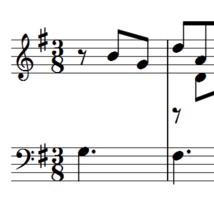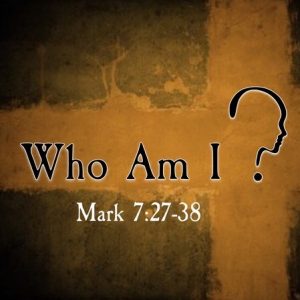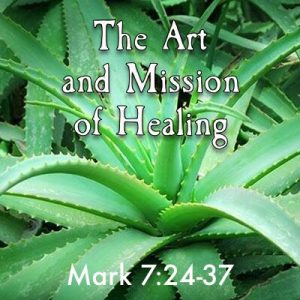 Make America Great Again is , well, a great slogan! It stirs our imaginations to conjure images of America as Great! But what is our frame of reference to be Great? Back a few centuries ago, America was considered Great because it was the friend of all, welcoming of every religion, even the Puritans (who were kicked out of England because their faith was just weird), the Anabaptists (who fled Europe because their faith was non-conformist), the Roman Catholics (who were feared to be worshipping a prince in a tall white hat instead of the Prince of Peace), and welcoming of Italians, Germans, Scots, French, Asian, African, and South American countries, too. Being great means no one is left behind. There is room for you. One more. The ones no one else seems to want. The others who are forgotten. Being Great as in winning the Great War, enjoying the Greatest Show on Earth, hearing the Greatest story ever told, singing Great is Thy Faithfulness, and recalling Jesus tell his disciples, Greater things you will do, are all, as I said, really great. Aspiring to greatness can be a great thing to aspire to. But what is great? And how do we as individuals become truly great? How do our communities become great? How can Cold Spring Church become great? How can America become great? Well, what did Jesus say about greatness? Let’s take a look at Mark 9:30-37.
Make America Great Again is , well, a great slogan! It stirs our imaginations to conjure images of America as Great! But what is our frame of reference to be Great? Back a few centuries ago, America was considered Great because it was the friend of all, welcoming of every religion, even the Puritans (who were kicked out of England because their faith was just weird), the Anabaptists (who fled Europe because their faith was non-conformist), the Roman Catholics (who were feared to be worshipping a prince in a tall white hat instead of the Prince of Peace), and welcoming of Italians, Germans, Scots, French, Asian, African, and South American countries, too. Being great means no one is left behind. There is room for you. One more. The ones no one else seems to want. The others who are forgotten. Being Great as in winning the Great War, enjoying the Greatest Show on Earth, hearing the Greatest story ever told, singing Great is Thy Faithfulness, and recalling Jesus tell his disciples, Greater things you will do, are all, as I said, really great. Aspiring to greatness can be a great thing to aspire to. But what is great? And how do we as individuals become truly great? How do our communities become great? How can Cold Spring Church become great? How can America become great? Well, what did Jesus say about greatness? Let’s take a look at Mark 9:30-37.
The disciples followed Jesus, literally followed him as he walked around. They were his students and where Jesus went, they went. But from many accounts in the Gospels, the disciples not only stayed attentive to their spiritual coach, they also had their own huddles with one another just out of earshot of Jesus. (An interesting Bible study could be looking up the manny times Jesus asks, “What were you discussing along the road?” ) Just out of earshot may protect your private conversation from a hard of hearing friend, but Jesus is not hard of hearing. He hears the whimpers of a baby and the sighs of the aged, Jesus hears all, something the disciples just couldn’t understand. So, the disciples were in their huddle, chatting up a storm, when Jesus asks, “What were you discussing on the road?”
Not a peep. Like getting caught in science class whispering to a classmate. Stoic Silence. Apparently no one admitted the conversational topic. THey were too embarrassed. But like I said, Jesus is not hard of hearing. He sits them down in the home they arrived at, and starts addressing what they thought was a silent running.
“So you want to be great?”
Simple. Include everyone. Welcome this child. Love this child. Protect this child. As you welcome children, you are welcoming me, Jesus said. To be great, is to be the servant of all. All of us are children. Some of us just move faster or slower than others. Every age. Every person. Welcome. Now, let’s show God’s love as servants in the community, and to the degree we serve, we will be great again! And that’s Great!


 What’s the difference between children and adults? Age? How about speed? Listen to the following pieces of music. Two pieces. Same music. Same pianist. Same piano. What’s different? (Glenn Gould, Goldberg Variations: 1. 1955. 2. 2005.) The first was faster than the second. The number “50” represents the difference between these two performances. 50 years between them. When younger, we move faster. As we become older, we move slower. But the childlike love for the music in 1955 was the same childlike love Glenn Gould played in 2005. All of us are children. We just move at different speeds. God loves all children, no matter how fast or slow they move!
What’s the difference between children and adults? Age? How about speed? Listen to the following pieces of music. Two pieces. Same music. Same pianist. Same piano. What’s different? (Glenn Gould, Goldberg Variations: 1. 1955. 2. 2005.) The first was faster than the second. The number “50” represents the difference between these two performances. 50 years between them. When younger, we move faster. As we become older, we move slower. But the childlike love for the music in 1955 was the same childlike love Glenn Gould played in 2005. All of us are children. We just move at different speeds. God loves all children, no matter how fast or slow they move! Who am I? This week, Jesus asks his disciples who others say he is. Our identity, sense of self, is something that is uniquely ours, yet also something that others influence and may even have opinions about. Many of us struggle as we attempt to deal with the opinions of others, or we seem to invest a lot of energy in trying to live up to the unrealistic or artificial expectations of others. We also take steps to “protect our identity” whether it is the password on our bank account or smart phone, the key code on our garage door, or the safe keeping of our wallet. Some aspects of our identity can be “stolen” but our true self is not only safe in God’s hands, it is not static either because as we learn and grow, our sense of self grows, as well. Our text this week from Mark 7:27-38 invites us into a dramatic encounter with Jesus who gives a rather shocking answer regarding his identity. His messianic identity of suffering, rejection, death, and resurrection is hard for the disciples to comprehend, and Peter tries to dissuade Jesus from his mission. Jesus’ disciples must see themselves as “followers” more than
Who am I? This week, Jesus asks his disciples who others say he is. Our identity, sense of self, is something that is uniquely ours, yet also something that others influence and may even have opinions about. Many of us struggle as we attempt to deal with the opinions of others, or we seem to invest a lot of energy in trying to live up to the unrealistic or artificial expectations of others. We also take steps to “protect our identity” whether it is the password on our bank account or smart phone, the key code on our garage door, or the safe keeping of our wallet. Some aspects of our identity can be “stolen” but our true self is not only safe in God’s hands, it is not static either because as we learn and grow, our sense of self grows, as well. Our text this week from Mark 7:27-38 invites us into a dramatic encounter with Jesus who gives a rather shocking answer regarding his identity. His messianic identity of suffering, rejection, death, and resurrection is hard for the disciples to comprehend, and Peter tries to dissuade Jesus from his mission. Jesus’ disciples must see themselves as “followers” more than This week, Jesus asks his disciples who others say he is. Our identity, sense of self, is something that is uniquely ours, yet also something that others influence and may even have opinions about.
This week, Jesus asks his disciples who others say he is. Our identity, sense of self, is something that is uniquely ours, yet also something that others influence and may even have opinions about. Our worship theme this week is healing as our Bible readings bring us back to the basics. Sort of a Real Life 101 from James 2:1-10, (You do well if you really fulfill the royal law according to the scripture, “You shall love your neighbor as yourself.” v8), and Mark 7:24-37 where Jesus is challenged by an “outsider” who expects a blessing, (But she answered him, “Sir, even the dogs under the table eat the children’s crumbs” v28).
Our worship theme this week is healing as our Bible readings bring us back to the basics. Sort of a Real Life 101 from James 2:1-10, (You do well if you really fulfill the royal law according to the scripture, “You shall love your neighbor as yourself.” v8), and Mark 7:24-37 where Jesus is challenged by an “outsider” who expects a blessing, (But she answered him, “Sir, even the dogs under the table eat the children’s crumbs” v28).